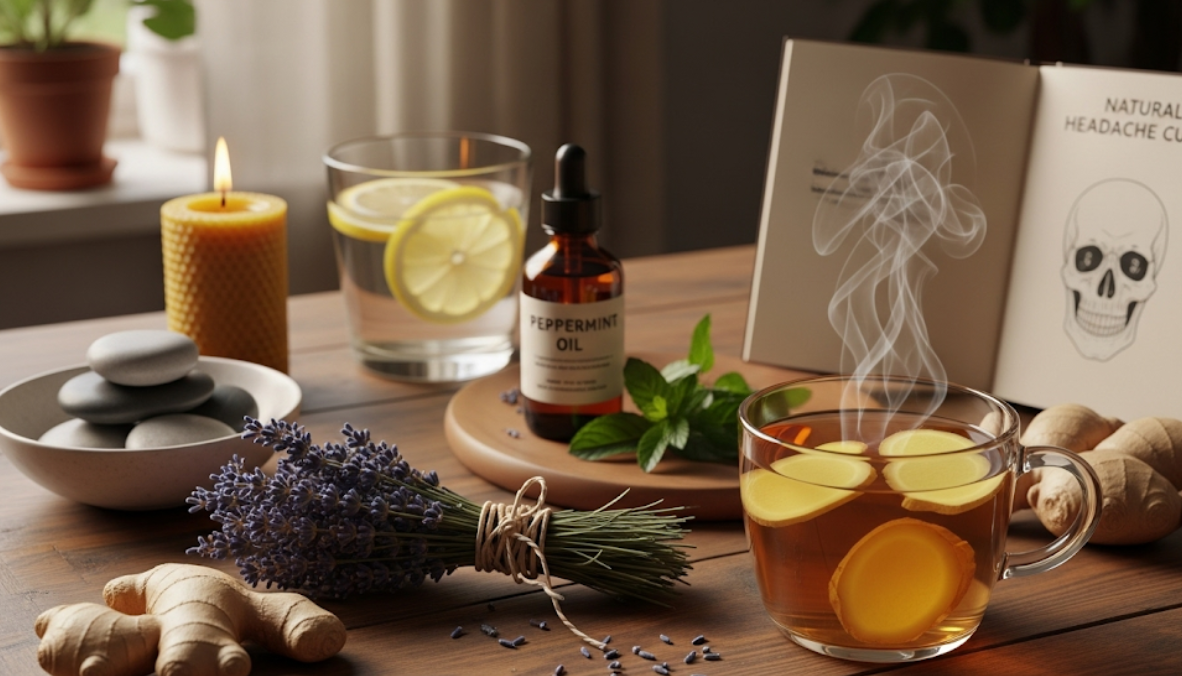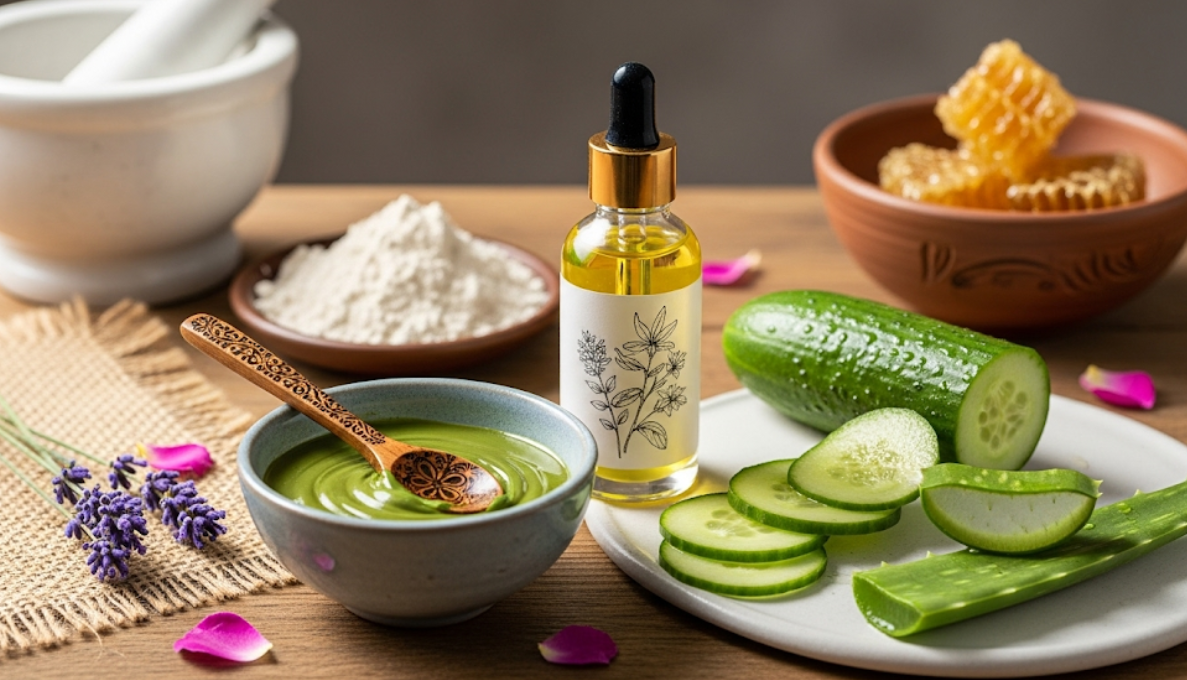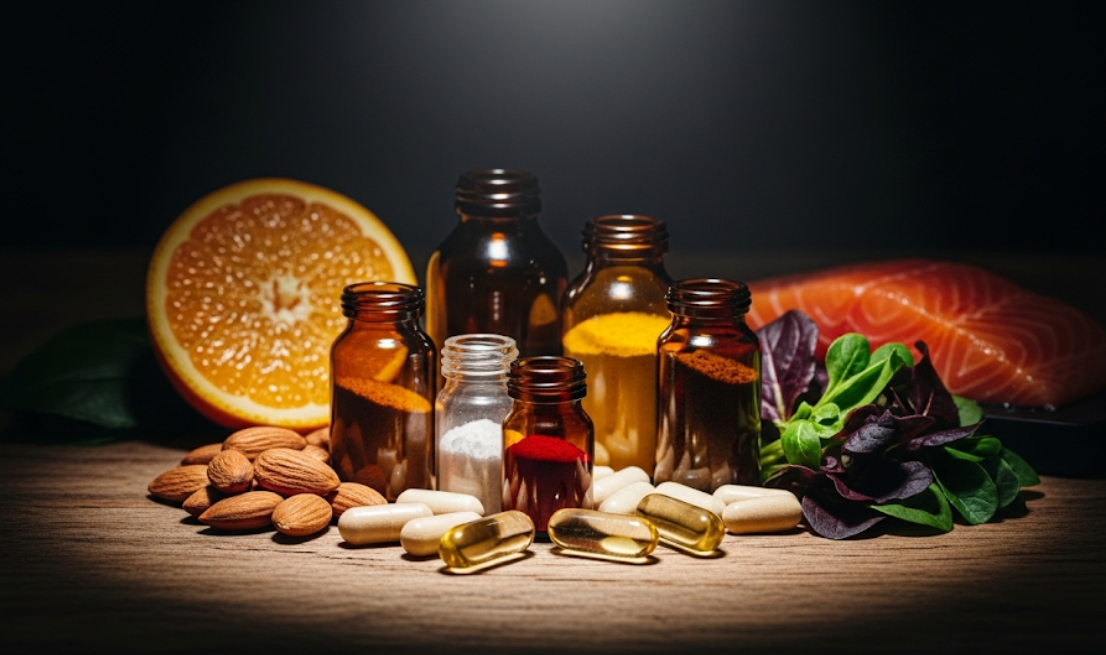Headaches are one of those things that almost everyone experiences. They can sneak up on you at work, during study hours, or even when you’re trying to relax. The pain can range from a dull pressure to a sharp throbbing that makes everything harder. Instead of always relying on painkillers, many people prefer natural remedies. Why? Because they are safe, effective, and often right within our reach.
Let’s dive into some natural ways to relieve headaches that are backed by both tradition and science.
Drink enough water 💧
One of the simplest reasons for a headache is dehydration. When your body lacks water, your brain tissue can temporarily shrink a little, which triggers pain. A surprising number of headaches disappear within 30 minutes of drinking water.
Tip: Keep a water bottle with you at all times. If plain water feels boring, try adding lemon slices or cucumber for flavor.
| Symptom | Possible link with dehydration |
|---|---|
| Dull pressure in head | Mild dehydration |
| Dizziness + headache | Moderate dehydration |
| Fatigue + headache | Severe dehydration |
Use a cold or warm compress 🧊🔥
Applying temperature therapy is a quick way to ease the pain. A cold compress placed on the forehead or back of the neck helps reduce inflammation and numbs sharp pain. On the other hand, a warm compress or heating pad relaxes tight muscles, which often cause tension headaches.
Cold packs → best for migraines.
Warm packs → best for tension headaches.
Simple method: Wrap some ice cubes in a towel and apply for 15 minutes. Or use a warm towel if your headache is from muscle strain.
Try essential oils 🌿
Essential oils are concentrated plant extracts that can calm the nervous system. Peppermint oil, when rubbed gently on the temples, creates a cooling effect and improves blood flow. Lavender oil is another favorite; just inhaling it or diffusing it in a room often brings quick relaxation.
Peppermint → cooling, refreshing, improves circulation.
Lavender → calming, stress relief, better sleep.
Always dilute essential oils with a carrier oil (like coconut oil) before applying on skin.
Caffeine in moderation ☕
Caffeine is a tricky but effective remedy. A small cup of coffee or green tea can reduce headache pain by narrowing blood vessels and boosting alertness. That’s why many painkillers actually contain caffeine.
But here’s the catch: too much caffeine or sudden withdrawal can cause rebound headaches. The key is balance. If you already drink 3–4 cups daily, adding more might worsen things.
Best advice: Try one small cup when you feel the headache coming, not after it’s severe.
Get enough sleep 😴
Poor sleep patterns are one of the leading causes of frequent headaches. Staying up late, scrolling on your phone, or irregular sleep schedules can make your head pound the next day.
Studies show that both oversleeping and lack of sleep trigger headaches. The sweet spot is usually 7–9 hours for adults.
Practical tip: Create a sleep routine. Try dimming lights at night, avoiding caffeine late in the evening, and keeping your room cool.
Massage and acupressure 💆
Gentle massage improves circulation and eases tension. Massaging your temples, neck, or the base of your skull can provide instant relief. Acupressure — applying firm pressure to certain points on the body — is also highly effective.
For example, the point between your thumb and index finger (called LI-4) is known in Chinese medicine for headache relief. Press and hold it for about 1–2 minutes, and many people notice the pain fade gradually.
Herbal teas 🍵
Certain teas have natural compounds that soothe nerves and relax the body. Chamomile tea reduces stress and promotes sleep. Ginger tea has anti-inflammatory properties that work well for migraine headaches. Peppermint tea not only helps with digestion but also reduces tension headaches.
| Tea | Benefit |
|---|---|
| Chamomile | Calms the nerves, aids sleep |
| Ginger | Anti-inflammatory, eases migraines |
| Peppermint | Relieves tension headaches, aids digestion |
Instead of reaching for soda or energy drinks, a warm cup of herbal tea can be both relaxing and healing.
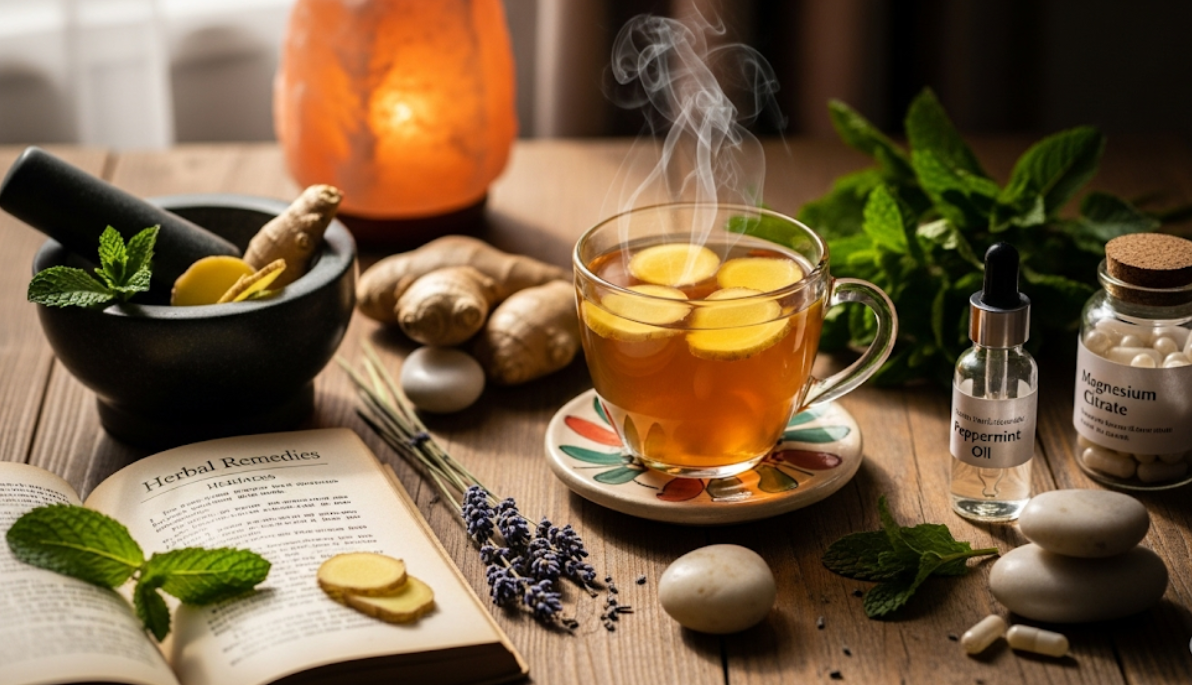
Reduce screen time 📱💻
We live in a digital world, but staring at screens for hours strains the eyes and causes “digital headaches.” The blue light and constant focus on screens create tension around the eyes and forehead.
The solution? Follow the 20-20-20 rule. Every 20 minutes, look at something 20 feet away for 20 seconds. It helps reset the eyes and reduces headaches caused by screen fatigue.
Also, adjusting brightness, sitting with proper posture, and using blue-light filters on devices can make a huge difference.
Quick Recap in a Table 📝
| Remedy | Best For | Quick Tip |
|---|---|---|
| Water | Dehydration headaches | Drink 1–2 glasses immediately |
| Cold/Warm Compress | Migraines or tension | Cold = migraines, Warm = tension |
| Essential Oils | Stress & migraine | Peppermint/Lavender work best |
| Caffeine | Early-stage headache | Small cup only |
| Sleep | Chronic headaches | 7–9 hours routine |
| Massage/Acupressure | Tension headaches | Press LI-4 point |
| Herbal Teas | Relaxation & migraine | Chamomile, Ginger, Peppermint |
| Reduce Screen Time | Digital strain | 20-20-20 rule |
FAQs about natural headache remedies
Q1. Can natural remedies replace medicine completely?
Not always. While these remedies work for mild to moderate headaches, severe or frequent migraines may still need medical treatment.
Q2. How fast do these remedies work?
Some (like water or peppermint oil) can work within minutes. Others, like improving sleep or reducing screen time, show results gradually.
Q3. Can children use these remedies?
Yes, but with care. Avoid essential oils directly on kids’ skin unless diluted properly. Always consult a doctor for repeated headaches in children.
Q4. Which remedy is the safest to try first?
Drinking water is the safest and easiest. Then try cold/warm compress or herbal tea.
Q5. What if headaches keep coming back?
If headaches happen more than 2–3 times a week, it’s best to see a doctor to rule out underlying conditions.
Read more: 12 Fitness Challenges to Try This Month
Final thoughts
Headaches can be frustrating, but they don’t always require heavy medication. Simple lifestyle tweaks and natural remedies often do the trick. Whether it’s drinking more water, massaging pressure points, sipping herbal tea, or taking a short digital break — relief is closer than you think.
The next time your head starts pounding, try one of these natural solutions first. Your body will thank you. 🌿
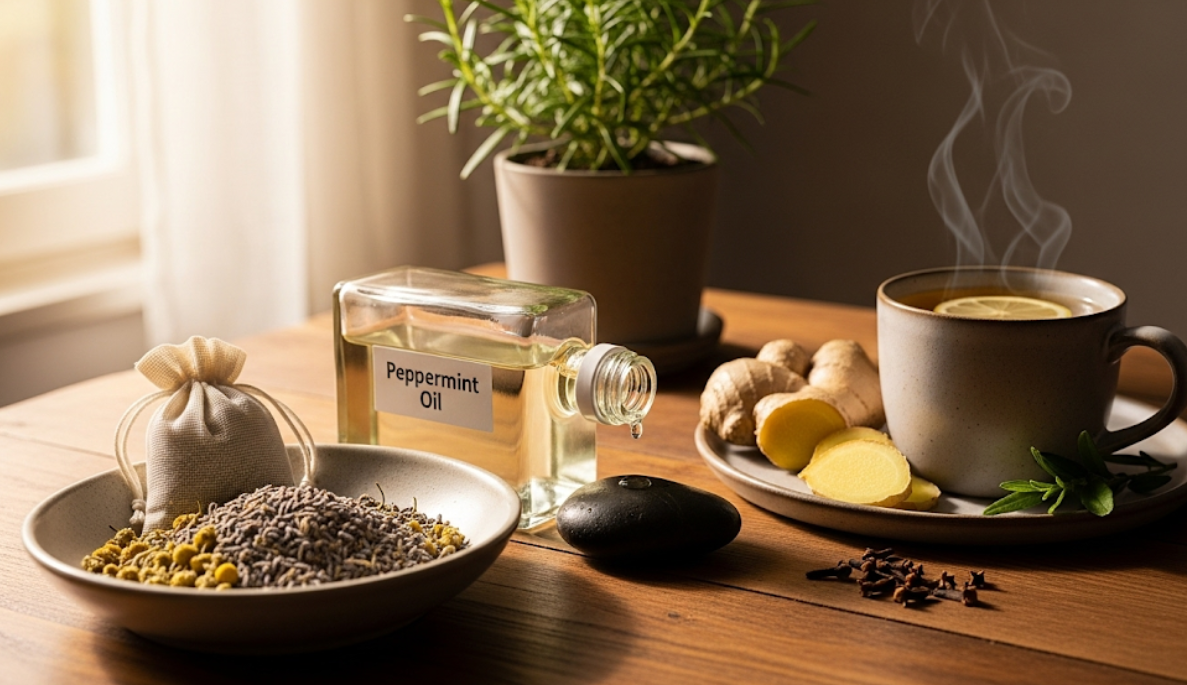
Read more: 12 Easy Smoothie Recipes for Weight Loss

